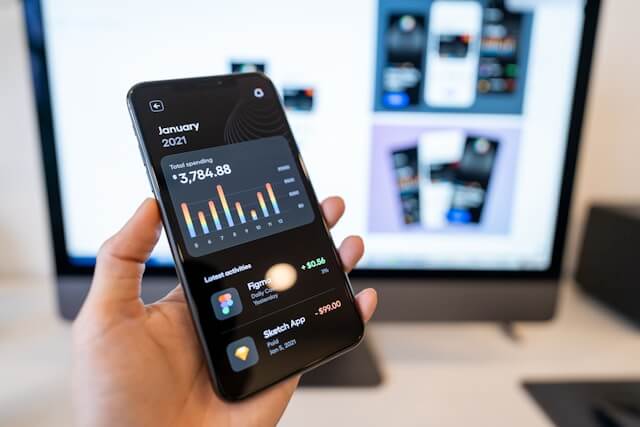The United Kingdom’s digital economy is expanding rapidly, and so is the demand for skilled developers who can transform business ideas into powerful mobile and web applications. With hundreds of app development agency options offering similar services, selecting the right partner has become a strategic business decision. A well-chosen development company can help reduce risks, deliver scalable solutions, and maximise return on investment (ROI).
- Experience and Technical Expertise
- Reputation and Client Reviews Among App Development Companies
- Choosing the Right Mobile App Development Company in the UK for Your Needs
- Business alignment
- Scalability and development approach
- Cultural and communication fit
- Example comparison
- Cost, Timelines, and Value in UK App Development
- Understanding cost structures
- UK pricing standards
- Time and delivery expectations
- Assessing long-term value
- Conclusion
This article outlines five critical factors to consider when choosing an app development company in the UK — covering expertise, reputation, alignment with your needs, cost, and long-term value.
Experience and Technical Expertise
When evaluating potential development partners, experience remains one of the strongest indicators of capability. A company with a proven history of delivering successful projects is more likely to understand the complexities of software architecture, performance, and usability.
Start by reviewing their portfolio. Look for diversity in project size and scope, paying attention to case studies that demonstrate measurable results. Companies with long-term client relationships usually indicate reliability and technical depth.
Technical proficiency
Assess whether the firm has experience across multiple platforms, including iOS, Android, and cross-platform frameworks such as Flutter or React Native. A technically strong team should also be proficient in integrating APIs, databases, and cloud infrastructures that align with your business model.
Emerging technologies
Modern projects increasingly depend on innovation. The best UK app developers stay ahead by exploring AI-driven features, AR/VR integration, and IoT connectivity to enhance user experience and functionality.
Verification methods
Request references and certifications. Companies with ISO or relevant security certifications show a commitment to quality standards. Checking developer profiles on LinkedIn or GitHub can also reveal their skill depth and participation in open-source projects.
Key takeaway: Experience combined with current technical skills forms the foundation of a reliable and innovative app partner.
Reputation and Client Reviews Among App Development Companies
Reputation is an important measure of trust in the UK tech industry. Established app development companies typically maintain a consistent online presence and transparent communication practices.
Authenticity and verification
Before finalising any agreement, check review platforms such as Clutch, GoodFirms, and Google Reviews. These sites provide verified testimonials and project ratings that can help you assess real-world performance. A company’s transparency about project scope and pricing often correlates with how they handle future challenges.
Evaluating client feedback
Pay attention to recurring themes in reviews — such as communication quality, adherence to deadlines, and post-launch support. Positive patterns across multiple clients usually signal a dependable team.
| Evaluation Factor | Why It Matters | What to Look For |
| Client Communication | Ensures alignment throughout the project | Regular updates, clear expectations |
| Delivery Reliability | Reflects consistency and commitment | On-time delivery across several projects |
| Post-launch Support | Indicates long-term reliability | Maintenance and performance monitoring |
| Pricing Transparency | Builds financial trust | Clear, documented cost structure |
Identifying red flags
Avoid companies that provide vague proposals, lack documentation, or overpromise results. These often signal limited experience or potential project delays.
A company’s reputation is built on transparency, accountability, and proven client satisfaction — all critical when investing in long-term digital partnerships.
Choosing the Right Mobile App Development Company in the UK for Your Needs
Selecting a Mobile App Development Company in the UK requires understanding how your goals align with the agency’s expertise. Businesses should define their app’s purpose and target audience before shortlisting potential partners.
Business alignment
An enterprise project may need a full-scale development house with advanced DevOps capabilities, while startups may benefit from smaller, agile teams. Aligning business needs with agency strengths ensures efficient resource allocation and technical focus.
Scalability and development approach
Check whether the company follows agile methodologies. Agile allows iterative progress, faster feedback, and flexibility in scope adjustments. Evaluate whether they use modern project management tools like Jira, Trello, or Asana for clear collaboration.
Cultural and communication fit
Smooth collaboration depends on cultural understanding and communication habits. UK-based teams often provide better timezone alignment and business communication standards than offshore counterparts, making them ideal for projects requiring frequent updates.
Example comparison
| Agency Type | Strengths | Ideal For |
| Boutique Studio | High customization, close collaboration | Startups, MVPs, creative projects |
| Mid-sized Firm | Balanced structure and pricing | SMEs with growth potential |
| Large Development House | Enterprise-level systems, multi-disciplinary teams | Corporations and complex integrations |
The best app partner is one that understands your industry, works transparently, and supports your product’s evolution beyond the launch phase.
Cost, Timelines, and Value in UK App Development
Budgeting is one of the most decisive factors when choosing a development partner. However, cost should be evaluated alongside quality, scalability, and future maintenance.
Understanding cost structures
App development companies typically offer three models:
- Fixed-price contracts: Suitable for projects with clear requirements and limited flexibility.
- Time and materials: Ideal for evolving projects where specifications may change.
- Dedicated teams: Best for long-term partnerships requiring continuous development.
UK pricing standards
The app development cost UK ranges between £40–£150 per hour depending on expertise, complexity, and location. London-based agencies generally charge higher rates than regional firms due to operational costs and specialist talent availability.
| Region | Average Hourly Rate | Typical Project Range |
| London | £100–£150 | £50,000–£250,000 |
| Manchester / Birmingham | £70–£120 | £30,000–£150,000 |
| Remote / Hybrid Teams | £40–£90 | £20,000–£100,000 |
Time and delivery expectations
Ask for realistic delivery timelines and milestone-based payment terms. A transparent schedule with clear deliverables helps manage risk and performance.
Assessing long-term value
Beyond the initial build, ongoing costs such as maintenance, security updates, and scalability improvements should be factored in. A company that offers proactive monitoring and support ensures your app remains competitive in the fast-evolving digital market.
Bottom line: Focus on balancing cost with quality and post-launch value rather than pursuing the lowest estimate.
Conclusion
Selecting an app development partner in the UK requires more than comparing quotes. Businesses should evaluate expertise, credibility, communication, and value creation. A company that demonstrates technical mastery, transparent operations, and commitment to long-term collaboration is more likely to deliver a high-performing product.
By applying these five criteria — experience, reputation, alignment, cost structure, and ongoing support — you can confidently identify a partner capable of delivering measurable results.
Start shortlisting your ideal app partner today and invest in a solution that strengthens your digital presence.


















